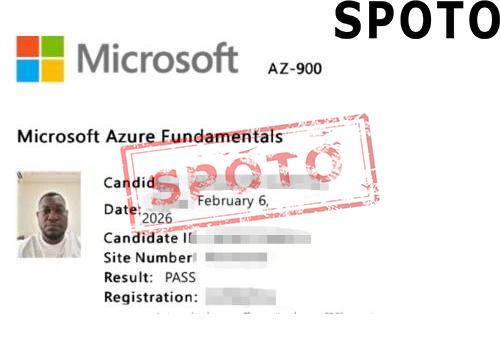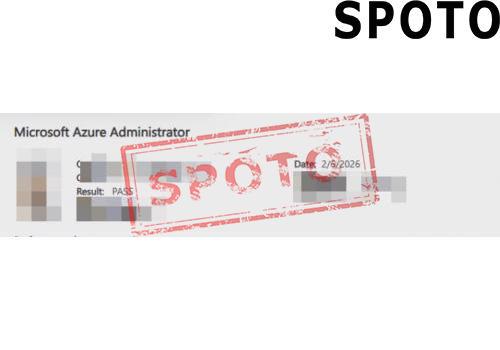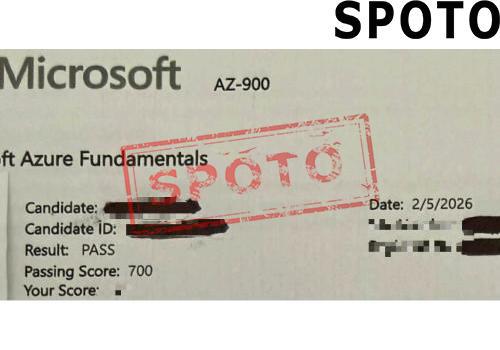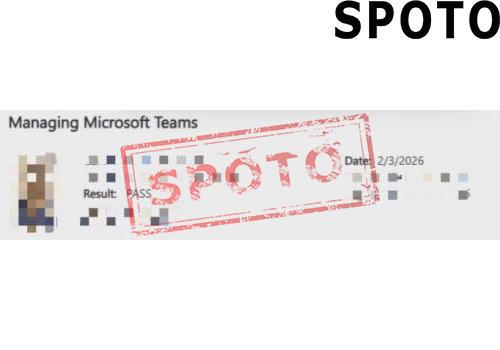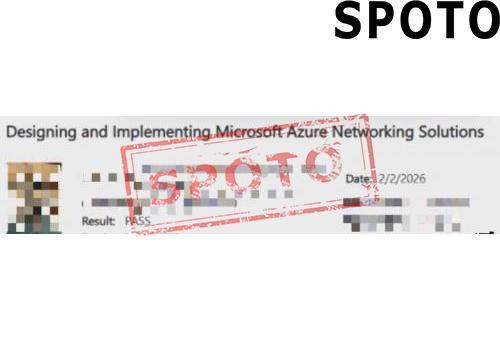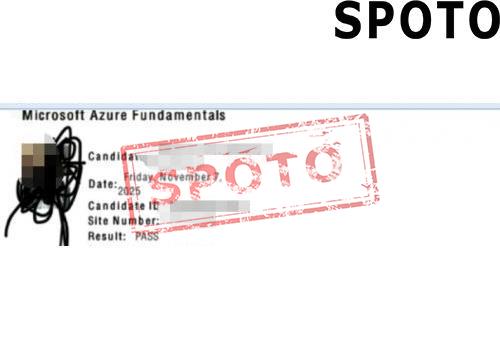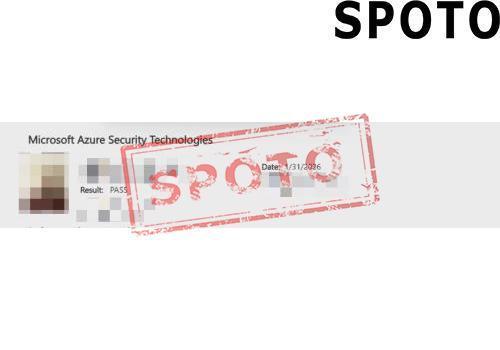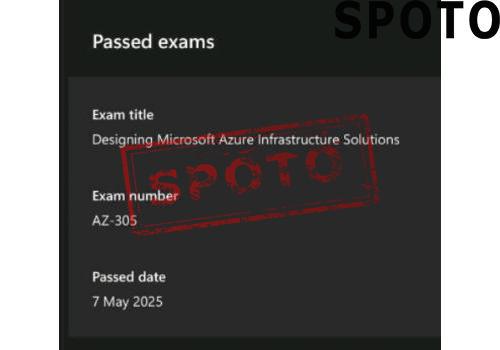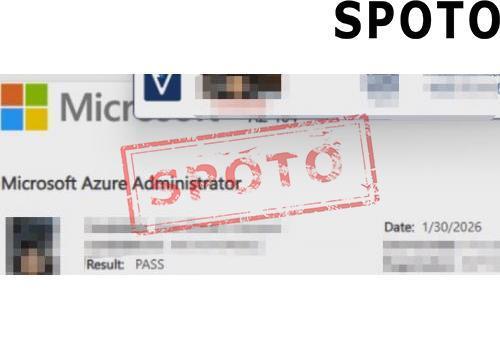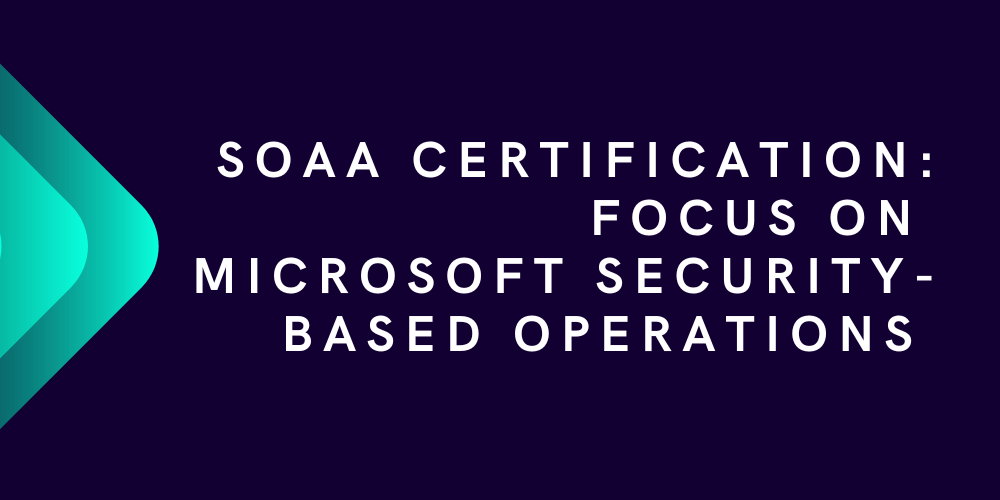
Table of Contents
This article describes how SOAA certification focuses on secure operations in cloud and hybrid environments based on Microsoft security tools, and its significance.
1. What is SOAA certification?
The Security Operations Analyst Associate (SOAA) certification generally refers to the professional role certification corresponding to Microsoft's SC-200 certification. This certification focuses on security operations in cloud and hybrid environments based on Microsoft security tools. It verifies the holder's practical ability to use Microsoft security solutions for threat detection, incident response, security monitoring, and compliance management. It is a core qualification for frontline security operations analysts within the Microsoft security ecosystem.
As enterprises migrate to cloud environments, security operations within hybrid IT architectures become increasingly complex.
The Microsoft Security Operations Analyst Associate certification specifically addresses this scenario, requiring not only proficiency in the operation of Microsoft security tools but also the ability to implement a closed-loop detection, analysis, and response system based on these tools. This includes centralized log analysis and threat hunting using Microsoft's SIEM tools, monitoring endpoints and cloud resources for anomalies, and ultimately, rapidly responding to security incidents. SOAA positions the holder as a practical security operations practitioner within the Microsoft ecosystem, emphasizing the integration of tools and scenarios rather than purely theoretical knowledge.
2. Benefits of having Security Operations Analyst Associate certification
As an official Microsoft certification, the SOAA certification directly verifies a holder's mastery of tools like Azure Sentinel and Defender. It's a key screening criterion for companies recruiting personnel to operate Microsoft security stacks. It's particularly well-recognized in industries like finance and retail that heavily utilize Microsoft products, serving as a testament to practical expertise within the Microsoft ecosystem.
The SOAA certification serves as both an entry-level and advanced level for cloud security operations, helping practitioners quickly master security operations in hybrid environments, transitioning from traditional on-premises security to cloud-native security, and adapting to the widespread trend of enterprise cloud migration. Importantly, skills like KQL querying and Sentinel automation are highly practical, allowing holders to directly solve real-world problems, deeply integrating skills with tools and improving work efficiency.
As an "Associate"-level certification, SOAA can be linked to higher-level Microsoft security certifications, facilitating career development and laying the foundation for advancement to positions like Security Architect and SOC Leader.
Its core value lies in cultivating frontline analysts who can use Microsoft tools to solve security problems in hybrid environments. It is an important milestone in the career development of security practitioners who are deeply engaged in the Microsoft technology stack.
3. Do you really know about SOAA certification?
The SOAA exam focuses heavily on how to use Microsoft's security tools and run security operations. It covers core areas like deploying and configuring the tools, detecting and analyzing threats, responding to security incidents, plus managing compliance and overall security posture. Certified personnel must master workspace creation, data source connectivity, query rule writing, and the design of automated response scripts. They must be familiar with the core functions of tools like cloud security posture management and be able to configure alert thresholds and customize detection rules. They must also integrate on-premises security devices with Microsoft cloud security tools to achieve unified monitoring across hybrid environments.
SOAA certification also requires the ability to detect and analyze threats, identify common threat patterns, integrate Microsoft threat intelligence with on-premises detection rules, prioritize alerts generated by Microsoft tools, distinguish false positives from real threats, and reconstruct attack scenarios. SOAA certification also includes the ability to execute appropriate response processes according to Microsoft's security incident classification standards, including isolating infected endpoints, blocking malicious traffic, collecting incident evidence using Microsoft tools, and, after incident resolution, assessing security configuration compliance using Defender for Cloud, remediating vulnerabilities, and updating response scripts to prevent similar incidents.
4. Qualifying for the SOAA certification
(1) Prerequisites
Microsoft officially recommends basic cybersecurity knowledge, Azure cloud service foundation, and about one year of security operations or IT support experience. Familiarity with the KQL query language will be more helpful in preparing for the exam.
(2) Taking the Exam
The SOAA exam lasts 180 minutes and contains 40-60 questions, including single-choice questions, multiple-choice questions, drag-and-drop matching questions, and scenario analysis questions. The SOAA exam has a maximum score of 1000 points, and a score of 700 or more is considered a pass.
(3) Maintaining Certification
The SOAA exam certificate is valid for one year and must be renewed, passed, or the certificate must be renewed.
5. Similar certifications of Security Operations Analyst Associate certification
- Cybersecurity Analyst+ (CySA+)
- Core Certified Security Administrator
- GIAC Certified Intrusion Analyst (GCIA)
- AWS Certified Security - Specialty
